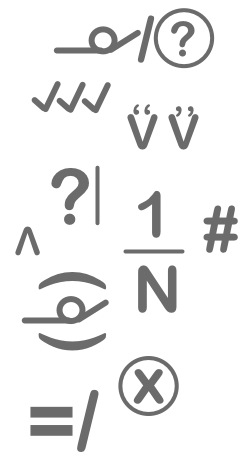 Although the Dow may have peaked 10,000 again, freelancers tend to operate in a “lagging indicator” market — a lot of companies still have yet to really rebound, and once they do they have to develop fresh confidence that their rebound is not about to re-rebound. Then they can build up their work and staff again — and then they’ll be able to think about farming work out to their stable of freelancers again.
Although the Dow may have peaked 10,000 again, freelancers tend to operate in a “lagging indicator” market — a lot of companies still have yet to really rebound, and once they do they have to develop fresh confidence that their rebound is not about to re-rebound. Then they can build up their work and staff again — and then they’ll be able to think about farming work out to their stable of freelancers again.
One thing that’s been a shock to a lot of writers is the discovery that they can lose even their oldest, most trusted clients just like that — and the hardest part is not taking it personally. Long-term clients become like friends; you know about their kids and their vacations, you send them birthday cards and get invited to their company holiday dinners. But they’re often in the same boat as you. Earlier this year, I wrote an article for one of my oldest clients and the following week I wrote her a letter of recommendation. In the intervening time, she and the rest of her department had been laid off.
It’s been that bad.
But just because things are starting to look up (however sluggishly) it doesn’t mean you can afford to let out a sigh of relief and wait for the phone to start ringing. The beginning of the upswing is a good time to get people thinking about you. Here are some things that might help you generate some much-needed future business.

 I’m always looking for useful analogies to convey how good editing can improve advertising copy, web features, white papers, and other written communications. This morning I was reading an article about medicine and it hit me that what editors do when revising a piece of written work is analogous to what doctors do when diagnosing a patient’s symptoms.
I’m always looking for useful analogies to convey how good editing can improve advertising copy, web features, white papers, and other written communications. This morning I was reading an article about medicine and it hit me that what editors do when revising a piece of written work is analogous to what doctors do when diagnosing a patient’s symptoms. On an automobile assembly line, you wouldn’t wait until after you’ve installed all the interior paneling and trim to put in the side windows. When it comes to editing your reports, white papers, instruction manuals, and other important documents, are you doing the equivalent?
On an automobile assembly line, you wouldn’t wait until after you’ve installed all the interior paneling and trim to put in the side windows. When it comes to editing your reports, white papers, instruction manuals, and other important documents, are you doing the equivalent? Recently, in preparation for an interview for a magazine article, I visited the website of the interviewee’s organization to get some background information. In particular, I wanted to make sure I understood the organization’s mission; it’s a useful reference point for framing interview questions.
Recently, in preparation for an interview for a magazine article, I visited the website of the interviewee’s organization to get some background information. In particular, I wanted to make sure I understood the organization’s mission; it’s a useful reference point for framing interview questions. Successful proposals demonstrate your skills and capabilities to prospective clients. But superior proposals convey more than just facts and figures — they also demonstrate that you are listening to them.
Successful proposals demonstrate your skills and capabilities to prospective clients. But superior proposals convey more than just facts and figures — they also demonstrate that you are listening to them. Since their introduction last February, PaperJamming templates have remained among the top ten downloads from the Active Voice
Since their introduction last February, PaperJamming templates have remained among the top ten downloads from the Active Voice  Would you deliberately set fire to your family’s photo albums? Wantonly wave an electromagnet over cassette recordings of your child’s first words? Smash your copy of the White Album into fragments with a hammer? Shred your grandparents’ love letters?
Would you deliberately set fire to your family’s photo albums? Wantonly wave an electromagnet over cassette recordings of your child’s first words? Smash your copy of the White Album into fragments with a hammer? Shred your grandparents’ love letters?